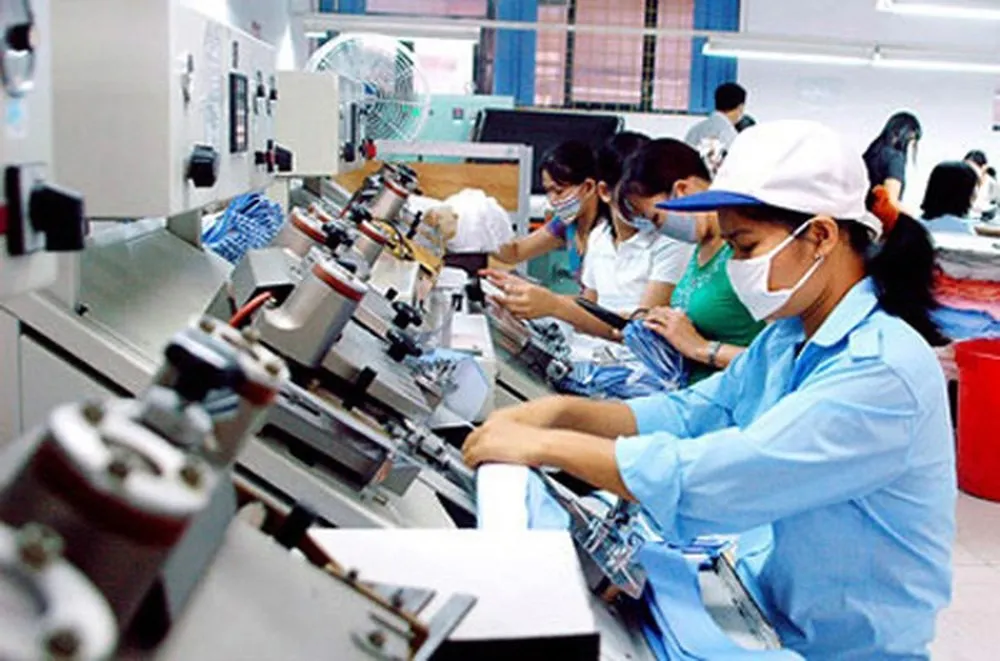
India a strong contender
At present, both India and Indonesia are tough contenders in meeting the requirements of large global multinational companies. With a large skilled labor force and lower wages, multinationals would have a conducive base to operate in either country.
In 2014, India launched its ambitious “Make in India” program to lure manufacturers to produce in India using its already skilled and trained labor force. The aim was also to create a hundred million jobs for Indians by the year 2025. However, in the last six years there has been not much visible change in the field of manufacturing and FDI has not increased as expected. Most of the FDI that enters India revolves around the three sectors of software, hardware and telecommunications.
Two major concerns in India are Labor Law and land clearance. Favorable factors in Labor Law discourage many foreign investors because the law requires an agreement between the government and workers on the simplest of issues such as job description or worker responsibility. Worse still, some regulations require involvement of state authorities and officials. This has caused conflict with different regulations on the same issue, and worker unions can make it difficult for companies to operate smoothly.
The other factor of land clearance has seen an improvement by way of more transparency, and easier relocation procedures under a new law enacted in 2013. However, the new law still favors the landowner over the investor and as multinationals require vast tracts of land in one area, this too is difficult to acquire. Apart from these two factors, another setback comes by way of India’s skilled workers. Most highly skilled workers are found in the field of information technology. Beside this, lack of good and convenient transportation and logistics could be negative factors for multinationals to operate smoothly in India.
Indonesia’s biggest problem is its direction towards protectionism, as it allows only those particular multinationals to enter that are preferred by the government. Besides this, the rigid laws enforced by the government on worker rights can turn away multinationals from investing in the country. Although some barriers and restrictions were removed by President Joko Widodo when he took office in 2014, foreign investors are still concerned about the poor transport system, corruption, high risk of terrorist threats, racial discrimination and instability in politics.
Vietnam in advantageous position
FDI enterprises play a pivotal part in a country’s economy, and for Vietnam they have played a hugely significant part in lifting the economy and bringing about changes in all development infrastructure within the country. We must therefore recognize all out failings, shortcomings and disadvantages before offering land and other amenities to foreign investors who will employ a huge labor force in their operations. Looking at the problems currently existing in India and Indonesia, Vietnam is seemingly in a very good position to attract the best multinationals. In the entire region, Vietnam is in one of the best positions right now to attract global multinationals to function and operate smoothly.
However, even when Vietnam is offering many favorable working conditions as well as advantages, foreign investors still want to milk it with more demands knowing full well that Vietnam is in need of more FDI. Some cities and provinces in Vietnam depend heavily on FDI to flourish and grow and have more or less been taken hostage by investors to provide more and more facilities and meet more of their demands.
The Politburo has issued Resolution 50-NQ/TW for selecting the most appropriate FDI, aimed at quality and not quantity. Serious concerns are currently being raised in how to choose the best and most relevant sectors, favorable investors, and also how to improve on infrastructure and train more human resources. At the moment these ideas have only been drawn in theory but now they need specific planning and a determined action plan, before offers can be made concretely to multinationals.
In order to participate and effectively benefit from the global supply chain, the first requirement is to train our labor force. We need to specify and target areas of training, and set specific goals and actions. We also need a professional business platform that will offer a high level of interaction with foreign investors and provide all the assistance they may need. We also need to create specific policies to encourage private enterprises to invest in the manufacturing sector and also simultaneously focus on the real estate sector and the services sector.
Vietnam needs to improve its act and gear for the future with the right planning and the right moves in a focused direction. This will not happen overnight and may take several decades, but by improving on our weaknesses and disadvantages we can overcome to be in a position of strength rather than at a position where Vietnam is constantly being squeezed to offer more and more advantages to investors.
(*) Member of AVSE GLOBAL, Lecturer at HCMC University of Economics, and IPAG Business School, Paris.




















